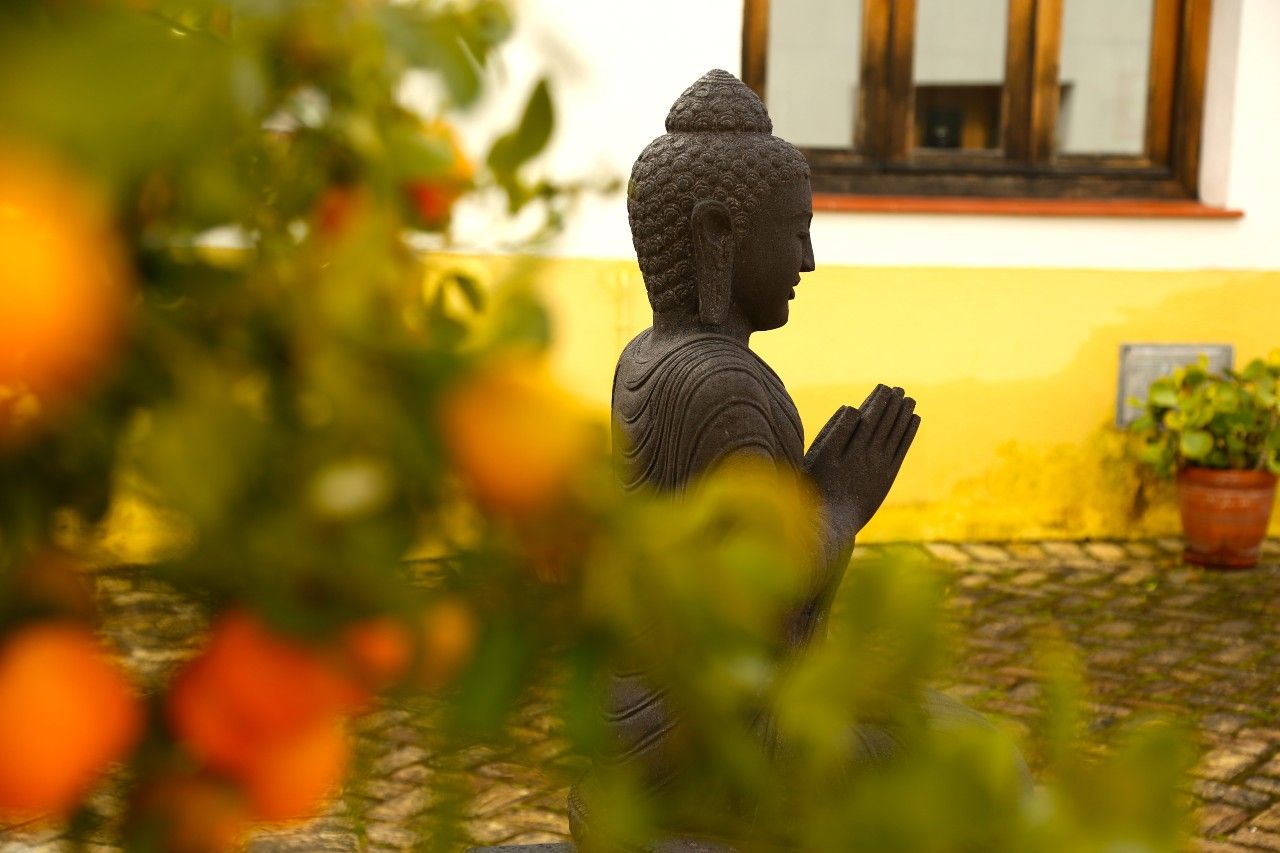The Five Koshas in Yoga represent five layers of identification with the seperate sense of self, or jiva, who we mistakenly take ourselves to be. They cover or hide the essential Self, which is our true nature. They are described as five sheaths that obscure the truth from us. These sheaths, layers, or bodies can be likened to a set of Russian dolls, nestled snuggly, one inside the other. However, it is important to know that they only seemingly hide the Self. These aspects of the individuated self or jiva are only apparently real: they are in fact part and parcel of Maya or Prakriti, the illusory manifest world of duality, whose spell we are under.
When we overcome our ignorance, by gaining Self-knowledge, the veils slowly become more and more transparent until we can see through them to our original identity as the Self; the only real thing that exists. At this point the veils no longer deceive us, and they metaphorically fall away, exposing who we always were/are. The Self is the overarching context in which all of the seeming individuals arise and disappear. It has no qualities, it is changeless and eternal. This one unchanging Self is who I am. And yet, according to the Krishna in the Bhagavad Gita, “it is hidden in plain sight” and we usually are painfully oblivious to it and thoroughly bewitched by Maya. In order to understand who we really are, we need to be taught, both through the study of Vedic scriptures and by a qualified teacher.
Usually when we use the word “I”, we commonly refer to the Body-Mind complex plus consciousness. The scriptures tell us that who we are is consciousness, free of the body-mind complex.
From a very early age, we mistake ourselves to be the body-mind complex. The koshas are different aspects of the apparently separate self (which in fact doesn’t really exist) that we take ourselves to be.
Let’s look at each one individually.
This is the foremost gross and basic covering of the Self; the physical body, with which nearly every human being strongly identifies. Rather than realizing that the body is an object appearing within me, we think I am the body. This idea immediately provides us with a strong sense of limitation, when we realise that the body is timebound and will eventually cease to exist.
We use the word “I” when speaking about the body. We endow the ‘I” with qualities such as, I am fat, I am tall, I am a man, I have blue eyes, I am English, whereas the true Self is ever free of all qualities.
The next layer which we mistakenly identify with is the physiological processes of the body. We may say:“I cannot breathe”, “my heart is beating too fast”, “I am hungry”, “I am tired”, “I am hot” when it would be more accurate to say that “the body is hot” or “the body is hungry”
The manomaya kosha represents our identification with the mind, basic instincts, and emotions. We mistake ourselves to be our feelings. We may say:
“I am disappointed”, “I feel hurt”, “I feel happy” and so on.
This kosha is the discriminating mind that is able to analise, draw conclusions and investigate. Only human beings have this faculty. We are tricked by it when we think this is who we are, but it can also lead us to freedom. We identify with this kosha when we say: “I think that…”, “ I guessed that…..”, “ I decided that…”, “I came to the conclusion that….”
This is the final layer covering the Self and is a place where spiritual seekers often get stuck. When we practice karma yoga and therefore have cultivated a lot of sattva, through living an ethical life, meditation, yoga, kindness, generosity, and gratitude then inevitably we will begin to experience equanimity and deep contentment. Then we may think: “I am blissful”, “I am peaceful”, “I am a happy person”. We may even mistake the Bliss sheath for freedom and think that we have reached the highest spiritual goal and even say “I am enlightened”.
Empty space, drag to resize
Vidya Jacqueline HeiselDirector of Suryalila Retreat Centre and Frog Lotus Yoga International,
Yoga Teacher Trainings.
This article was first published in The Om
Inspired to learn more? Vidya leads Yoga Teacher Training courses, in which meditation is valued daily practice.


